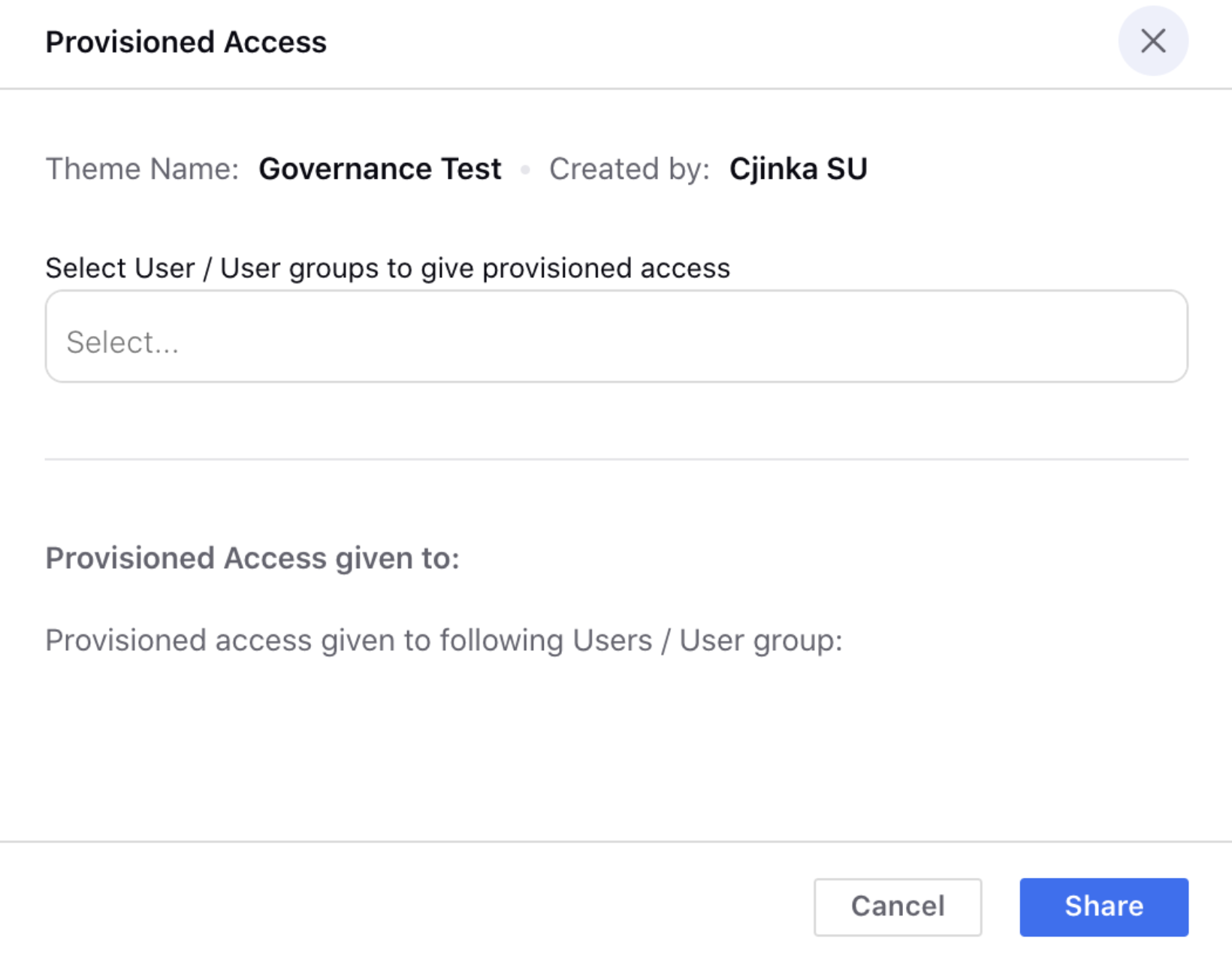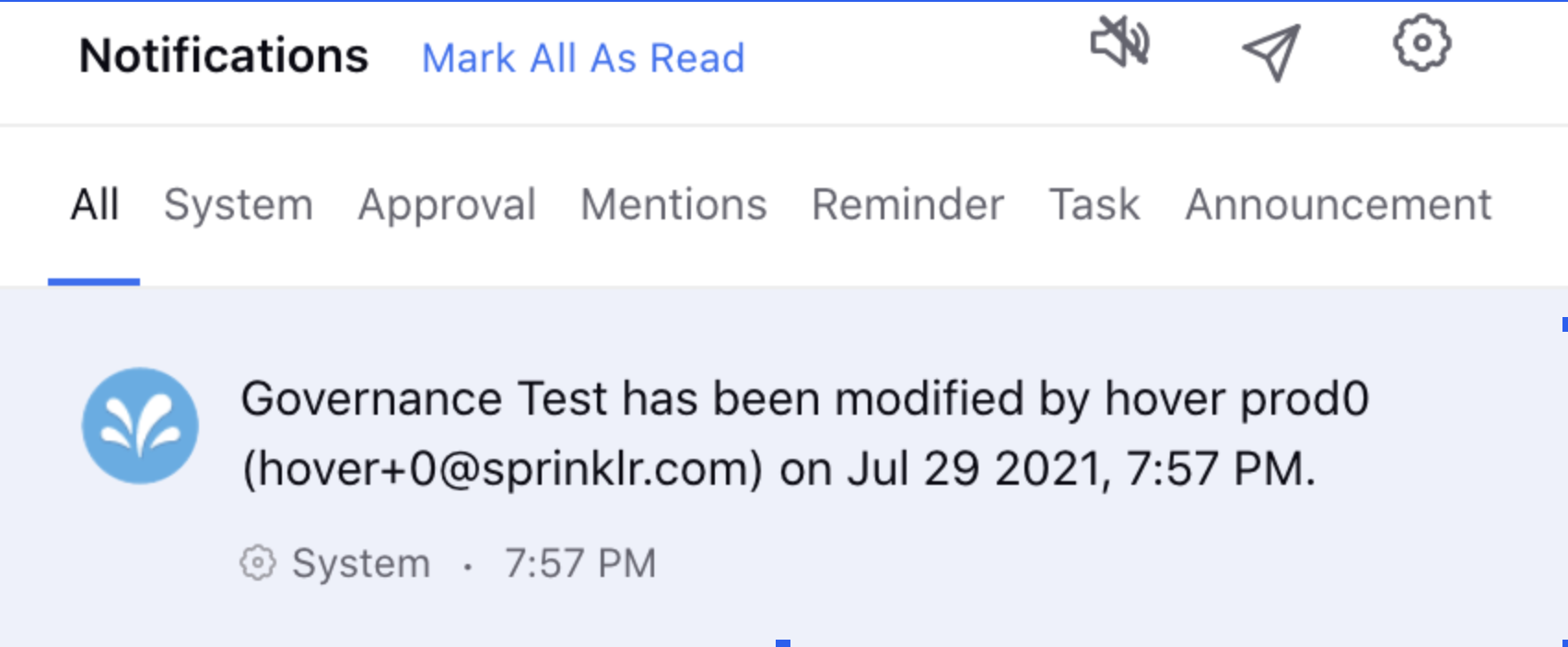Entity Governance in Social Listening
Updated
Entity Governance aims to strengthen the governance structure of Listening entities to ensure that visibility, ownership, and read/write permissions are protected with the correct user or user groups, thereby making it more robust.
Note: To learn more about enabling this capability in your environment, please work with your Success Manager or contact support@sprinklr.com.
Use Case
With multiple entities defined in Listening by different users, it is really difficult to segregate which entities are owned by whom to update/modify/delete/use appropriately in any report or dashboard. Also, it is a high risk that the work done might be modified/deleted unknowingly by another team that has not authored the entity.
Broad Objective
To make the governance of Listening entities robust to ensure that visibility, ownership, and read/write permissions are protected with the correct user or user groups.
Entities Scoped Under this Change
Themes
Topics
Keyword Lists
Topic Group
Custom Metrics
Domain Lists
Content Links
Research Query
Impact
Enabling this capability will have the following impact:
Behavior for Share & Permissions
Share
Only the entities which are shared would be visible in the list view or filters to the user/user group or workspace with whom the entity is shared:
The behavior of entities in filters in shared dashboards: If a dashboard is shared with a user, however, if the filters contain entities that are not shared or permissioned with the user, then the entities will be shown as "Restricted" in the filters to that user.
The behavior is explained with an example: Theme "Governance Test" is created by user "Cjinka SU" and is not shared or permissioned with any other user.

It will be visible to the owner "Cjinka SU" in the dashboard as:

To other users who do not have access to the theme, it will be visible as:

The behavior for Widget level plotting of Entity Tags/Entity Groups: Entities that are not shared or permissioned with the users will see "Restricted" in the widget if the entity as a dimension value is plotted via entity tag. The behavior is explained with an example: 16.5_Theme" is the theme tag that is attached to the "Governance Test" theme as shown:
The behavior of entities in list view: User/ User groups with whom entities are shared can view the name of the entity in the list view or filters but they will not be able to edit/ clone/ delete/ audit/ export the entity. Also, the Topic queries in the list view will be presented as "Restricted".
The behavior is explained with an example: Theme "Governance Test" is created by user "Cjinka SU" and is not shared or permissioned with any other user.
The query will be visible to the owner "Cjinka SU" in the list view as:

To other users who do not have access to the theme, the query will be visible as "Restricted":

Three dots beside entities in the list view will be disabled if the entities are just "shared" with the user.
Permission
Only User/ User groups with whom entities are "Permissioned" will be able to view/ edit/ clone/ delete/ audit/ export the entity. Essentially, they will have all possible permissions similar to that of the owner of the entity.
Owners of the Entities can provision permissions to further user/ user groups or workspaces.
Behavior for Global Users & Admins
Currently, Global User & Admin by default have permissions to view/ edit/ clone/ delete/ audit/ export governance for the all entities.
With the enablement of this capability, Global User & Admins will by default have only the “View” permissions for the entities shared with them, i.e. they can view the entities in the list view or filters but they will not be able to edit/ clone/ delete/ audit/ export the entity unless it is explicitly "permissioned" with them.
Exports
Entities that are just shared and not permissioned
Entities that are just "shared" will not be available in the exports.Entities that are permissioned
The export will contain permissioned entitiesEntities that are neither shared nor permissioned
The export will not contain the entities which are neither shared nor permissioned
Visibility of Existing Entities with No Share Configs
To ensure that existing entities which do not have any share or permission configs added to them remain visible to different workspaces, we will share those entities with all workspaces.
Updates to Shareable Entities
If any user other than the owner of the entity modifies the entity, then the owner will receive a notification.
The behavior is explained with an example:
Theme "Governance Test" is created by user "Cjinka SU" and has shared write permissions (i.e. provisioned access) to the "hover prod0" user. When the latter updates the theme the owner, "Cjinka SU", will receive an in-platform notification as shown. The owner will also receive an email for the same.
